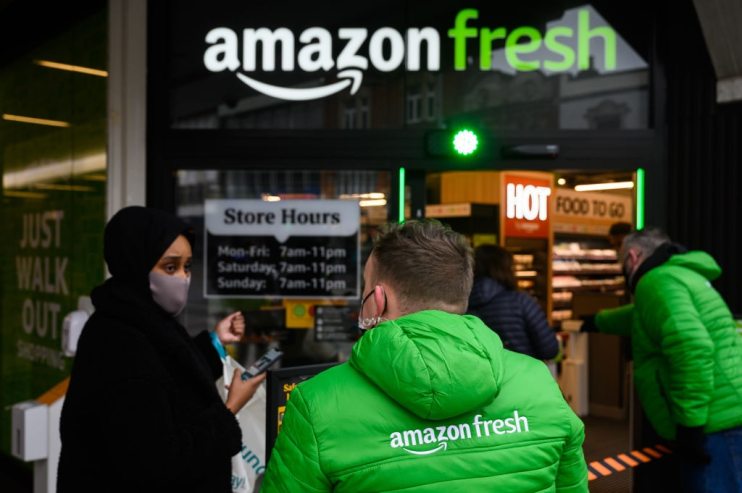Competition watchdog brands Amazon as ‘grocery retailer’ enforcing UK supplier protection

UK competition watchdog has branded Amazon as a “grocery retailer” after the ecommerce giant announced it would be increasing its activity in the sector, with plans to launch 15 new Amazon Fresh stores in London.
The Competition and Markets Authority’s (CMA) decision is aimed at protecting suppliers and ensuring fairer payment terms, forcing Amazon, as well as its UK subsidiaries, to comply with its grocery code.
Adam Land, Senior Director at the CMA, said the decision was a way to create a “level playing field” for grocery firms, and that the watchdog would be reviewing the current retail framework.
The code applies to any retailer with an annual turnover of more than £1bn from grocery sales, and Andrew Goodacre, chief executive at British Independent Retailers Association, told City A.M. it was “great news” for suppliers.
“What is important from a grocery perspective is that it brings Amazon in line with the big supermarkets like Tesco and Sainsbury’s, and will hopefully help smaller suppliers when handling these big retail giants”, he said.
Small suppliers often face lengthy payment terms, with some of the biggest retailers taking three months to pay for the goods; the code looks to redress this relationship.
“Smaller suppliers don’t have the cash to wait three months for payments”, Goodacre added.
Under the code, Amazon will also be blocked from changing supply contracts at short notice and will need to give an appropriate period of notice if they no longer want to use a supplier and provide reasons for ending the contract.
Julian Skelly, Head of Retail EMEA at Publicis Sapient, told City A.M. that the CMA’s announcement was a “logical move”.
“As more and more of us rely on Amazon for our food shopping, it is right that they are held to the same supplier and customer standards as other grocers. It will be interesting to see the implications for other categories. In the end, Amazon is a technology company that delivers great experiences that customers want to consume.”
“The fact that these customers happen to be food shopping means that they need to comply with the appropriate grocery standards. I expect we’ll see more moves like this, as Amazon becomes more and more important in our retail lives.”
Ross Hindle, analyst at Third Bridge, added: “Amazon has ambitious plans to grow within the UK market. This retail classification is likely to be a net benefit for not just suppliers and consumers but for Amazon itself. It allows the company to build its grocery business to a meaningful size within the required regulatory framework.”